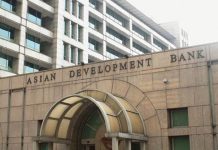ISLAMABAD: The imposition of hefty tax on corporate earnings has impacted the balance sheets of businesses with many of them running in losses.
This was stated by Muhammad Qasar, the Manager Operations of Askari Bank Limited, during an interview with WealthPK.
Here are the details:
According to him, the bank has strong reserve foundation unlike other banks. Moreover, the State Bank of Pakistan’s measures have helped insulate the cooperate sector from the economic stress. The central bank has also extended loan facilities to the banks to help them avoid any financial stress and keep paying their employees instead of laying them off.
Due to the bank’s exposure to foreign exchange, there is a risk that the bank’s capital or earnings will fluctuate as a result of fluctuations in exchange rate.
The bank’s treasury wing controls foreign exchange risk by matching spot and forward liabilities and assets in foreign currencies. Value at Risk (VaR) is determined for the foreign exchange exposure on a daily basis, and the foreign exchange exposure is kept within legal limitations. Through daily sensitivity analysis, the effect of a change in the dollar-rupee parity is also calculated.
Askari Bank posted an operating profit of Rs20.5 billion in 2021, which was marginally higher than Rs19.7 billion a year earlier. The bank’s profit-after-tax stood at Rs9.7 billion compared to Rs10.8 billion previously, posting a 10.2% decline year-on-year mainly due to higher provisions against non-performing assets. The net provision requirement increased to Rs4.9 billion as against Rs1.9 billion. The earnings per share (EPS) for 2021 was Rs7.70, compared to Rs8.57 for the previous year.
Inflation affects the banks as the cost of everything rises. The SBP has enforced regulatory measures, including increasing its policy rate, enforcing a higher cash reserve requirement, and regulatory tightening of consumer finance to combat inflationary pressure and ensure sustainable growth.
Liquidity risk is a company’s inability to secure funding to fulfill obligations. The Asset and Liability Management Committee (ALCO) oversees the bank’s liquidity position. ALCO analyses the preservation of financial position, liquidity ratios, and depositor concentration. The bank is certain that the current liquidity buffer will be enough to cover any negative changes to the cash flow maturity profile.
The main reason is imposition of the super tax on the earnings of the corporate sector. The companies’ after-tax profits are being squeezed and business are going in losses.
INP/javed






